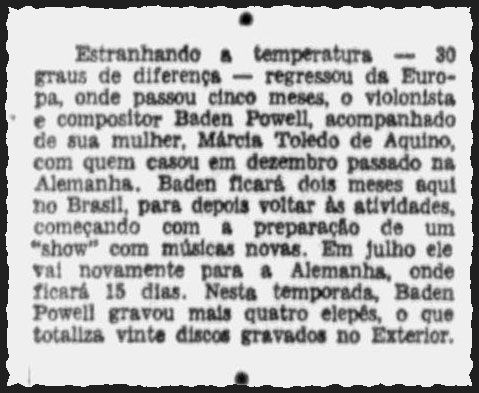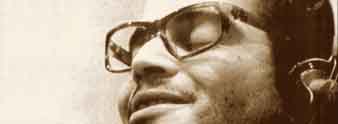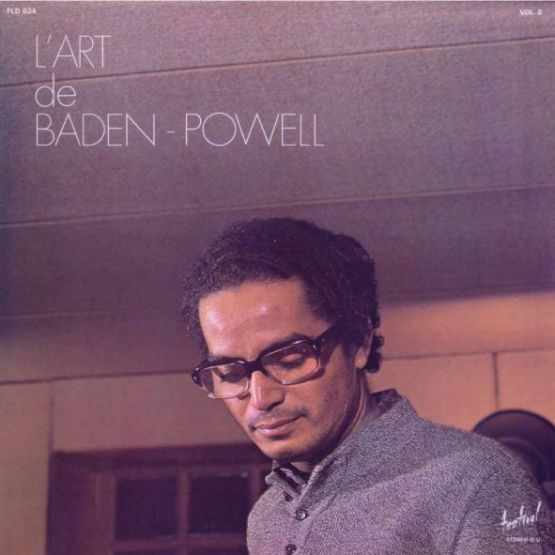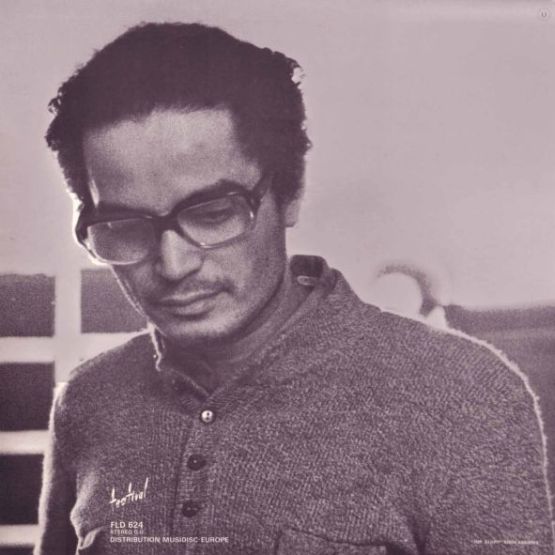|
Luis Agudo told us: Baden Powell and Marcia were on holiday in Paris (*), when the French Festival
label asked him if he would be able to record five LPs. There was given very little time to record five LPs, but Baden
agreed and decided not to return to Rio and to stay in Paris. He asked me to play percussion as I had played on another
record the year before. We walked to the studio, that was located out of Paris, it was very cold. Baden decided to record
only four instead of five LPs.
He didn't have his own guitar with him so the French guitarist Maurice Coulas, who was also in the studio, lend him his guitar:
a Martin western guitar, with he used in the entire session. The four LPs were done within two days.
BrazilOnGuitar says: Luckily the year 1972 did not end without a recording. The short recording time is hardly noticed.
These two days resulted in an remarkable artistic work of all people involved. However due to the short time span mostly
arrangements of known Brazilian songs and improvisations like Samba or Braziliense were done. In all Baden
presented 8 new compositions, one of them Retrato Brasileiro reminding of Chopin's Nocturne op.72, which soon became
a standard in guitarist's reportoire.
Noticeable ist the relaxed, happy mood of the recordings, since most of his releases have a more melancholic mood.
The song Barquinho that opens the first of the four LPs was written by Roberto Menescal and originated from a
kind of emergency situation during a boat trip. Menescal made the best out of the situation and composed the song.
Baden and his musicians also made the best of the short recording time - and succeeded. The recordings are the first
with bass player Guy Pedersen (or Pederson), born on June 10th 1930 in Grande-Fort-Philippe, France, who would accompany
him the following years on tour and on records.
In 1975 Festival published Samba Triste Vol.5, possibly to finish the original quintology. However, Samba Triste
comes from a different period of development and was recorded in 1975.
Interesting is to look at which titles were selected by Baden Powell. He was often considered a Bossa Nova guitarist,
but on these and other recordings he preferred (Afro-)Samba and Brazilian Jazz. On the four recordings there are
titles of thirteen different composers from divers eras. His own and Tom Jobim's compositions are the most numerous.
Between 1990 and 1993 parts 2-4 were released on CD, including some bonus tracks from other Festival recordings from
1970 to 1975. All three CDS in AAD kept the original sound of the sessions well, while the remastering attempt of the
1995 Musidisc sampler (Nr. 330352) failed. Only in 2003 some titles were re-released on the sampler O Universo Musical
de Baden Powell with a well-done remastering. Some recordings are wrongly dated as 1971 in the booklet.
Additional info from Max in France on 31 August 2015: "Le studio Frémontel" was not actually in Paris, it was located in a little village
in Normandy called "Le Fidelaire", not very far from the city of Evreux. It was probably not a very big, nor very high tech
studio for it's time. I think it was built in a typical norman farm, this probably explains why Luis Agudo remembers a cold
temperature.
(*) Additional info on 18 September 2022: Baden and Marcia visited Europe in February 1972. And that was when
the recordings took place. See the report below from "A Tribuna, 9 March 1972, p.11.
We thank Robert G. (Germany) for his translation and Max for his infos.
|



